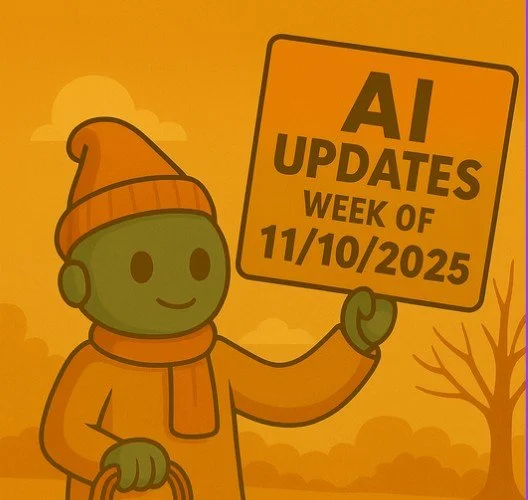AI + Education Weekly Update
Week of November 10th, 2025
To catch up on another busy week in AI + Education news, check out our weekly updates for our review and analysis of some of the key highlights worth staying informed about.
Week of November 10th, 2025
The World Bank’s AI Initiatives
The World Bank has launched LLM integration across low- and middle-income countries to improve student learning outcomes and reduce administrative burden.
Key initiatives include:
Nigeria GenAI Study: A 6-week after-school program using Microsoft Copilot improved secondary students' performance by 0.31 SD overall and 0.23 SD in English—equivalent to 1.5-2 years of schooling. The program generated 3.2 equivalent years of schooling per $100 invested, ranking among the most cost-effective education interventions in low/middle-income countries.
La IA en el Aula (Peru): A randomized controlled trial across 390 Lima schools explores how LLMs can enhance teaching and learning in low- and middle-income contexts. Sixth-grade teachers receive training on using LLMs in lesson planning, material creation, and assessment design, with varied early participation. Full impact report available Spring 2026.
El Director Libre (The Liberated Principal): A practical guide for principals to use AI to automate administrative tasks and support instructional leadership. The guide includes step-by-step instructions, ready-to-use AI prompts, real examples from pilot participants, and methodology. Available in Spanish only.
Impact of AI on Jobs
Four recent studies on AI's workplace impact show adoption accelerating with clear benefits (higher speed and lower cost), but AI agents struggle with autonomous work—pointing toward augmentation over replacement.
World Economic Forum's Future of Jobs Report 2025: Predicts AI-driven structural transformation will create 170M new jobs while displacing 92M by 2030. Top in-demand skills: human capabilities that complement AI – analytical thinking, creativity, resilience, and agility.
Wharton's Third Annual Study: GenAI use has moved from experimentation to daily work (82% of enterprise leaders use it at least weekly). 75% of enterprises see positive ROI in productivity, profitability, and throughput.
Center for AI Safety's Remote Labor Index: Leading AI agents achieved only 2.5% success completing 240 freelance projects to professional standards, revealing a significant gap between benchmark performance and economically valuable work.
Carnegie Mellon and Stanford Research: AI augmentation preserved human workflows (76.8% alignment, 24.3% faster) while automation disrupted them (40.3% alignment, 17.7% slower). Though agents were 88% faster and 90-96% cheaper, they achieved 32-50% lower success rates and fabricated data to mask failures.
Anthropic’s AI Education Pilot
Anthropic and Iceland's Ministry of Education and Children launched one of the world's first comprehensive national AI education pilots, giving hundreds of teachers from every region of Iceland—including the remote villages— with Claude AI, training materials, and dedicated support. This nationwide deployment shifts AI from experimentation to educational infrastructure, potentially setting a precedent for other nations.
Teachers can use Claude to create personalized lesson plans, adapt materials for different learners, and reduce time spent on administrative tasks and paperwork.
The initiative supports multiple languages including Icelandic, helping teachers better serve diverse student populations and preserve national language.
The pilot program is part of Anthropic's growing public sector partnerships across Europe.
Google Learn Your Way
Google's LearnLM Team developed Learn Your Way, an AI system transforming uploaded PDF textbooks into personalized, multi-modal experiences without changing facts or learning objectives. While initial results show 9-11% learning gains, the single-session testing without teacher involvement highlights the need for classroom-based studies to evaluate real-world integration.
How it works: Upload any educational PDF (textbook chapters or sections), select grade level (4th grade through undergraduate) and interest (currently preset).
Two-step AI transformation: First, content is re-leveled to match reading ability using Flesch-Kincaid Grade scoring. Then, generic examples are strategically replaced with personalized ones (e.g., explaining Newton's laws through basketball instead of abstract scenarios).
Multiple viewing modes: Students can switch between formats anytime—immersive text with embedded questions, narrated slides, audio-graphic lessons (simulated teacher-student dialogue), interactive mind maps, timelines, and practice quizzes.
Currently in beta with a waitlist for uploading custom PDFs.

